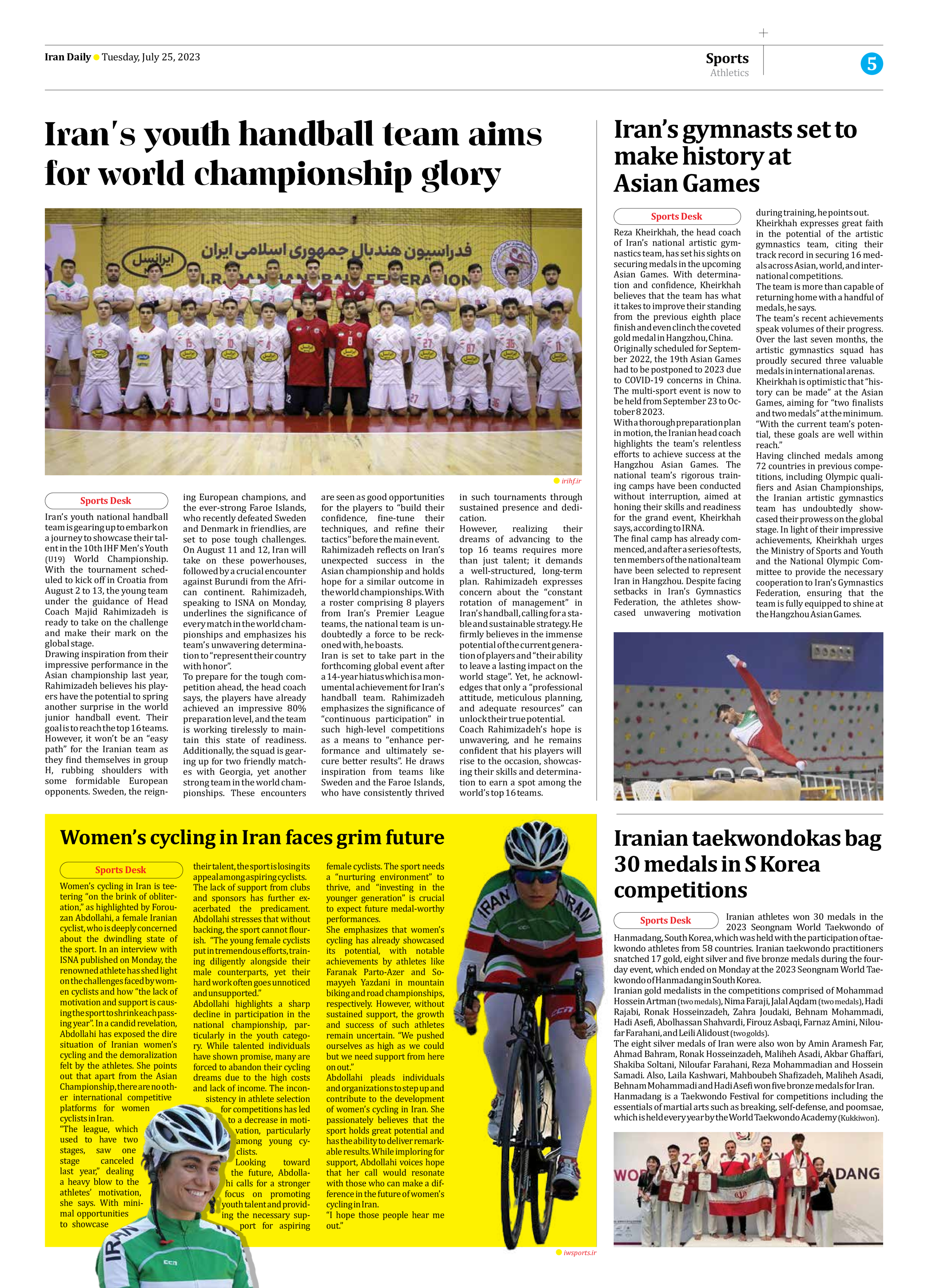
Women’s cycling in Iran faces grim future
Women’s cycling in Iran is teetering “on the brink of obliteration,” as highlighted by Forouzan Abdollahi, a female Iranian cyclist, who is deeply concerned about the dwindling state of the sport. In an interview with ISNA published on Monday, the renowned athlete has shed light on the challenges faced by women cyclists and how “the lack of motivation and support is causing the sport to shrink each passing year”. In a candid revelation, Abdollahi has exposed the dire situation of Iranian women’s cycling and the demoralization felt by the athletes. She points out that apart from the Asian Championship, there are no other international competitive platforms for women cyclists in Iran.
“The league, which used to have two stages, saw one stage canceled last year,” dealing a heavy blow to the athletes’ motivation, she says. With minimal opportunities to showcase their talent, the sport is losing its appeal among aspiring cyclists.
The lack of support from clubs and sponsors has further exacerbated the predicament. Abdollahi stresses that without backing, the sport cannot flourish. “The young female cyclists put in tremendous efforts, training diligently alongside their male counterparts, yet their hard work often goes unnoticed and unsupported.”
Abdollahi highlights a sharp decline in participation in the national championship, particularly in the youth category. While talented individuals have shown promise, many are forced to abandon their cycling dreams due to the high costs and lack of income. The inconsistency in athlete selection for competitions has led to a decrease in motivation, particularly among young cyclists.
Looking toward the future, Abdollahi calls for a stronger focus on promoting youth talent and providing the necessary support for aspiring female cyclists. The sport needs a “nurturing environment” to thrive, and “investing in the younger generation” is crucial to expect future medal-worthy performances.
She emphasizes that women’s cycling has already showcased its potential, with notable achievements by athletes like Faranak Parto-Azer and Somayyeh Yazdani in mountain biking and road championships, respectively. However, without sustained support, the growth and success of such athletes remain uncertain. “We pushed ourselves as high as we could but we need support from here on out.”
Abdollahi pleads individuals and organizations to step up and contribute to the development of women’s cycling in Iran. She passionately believes that the sport holds great potential and has the ability to deliver remarkable results. While imploring for support, Abdollahi voices hope that her call would resonate with those who can make a difference in the future of women’s cycling in Iran.
“I hope those people hear me out.”







